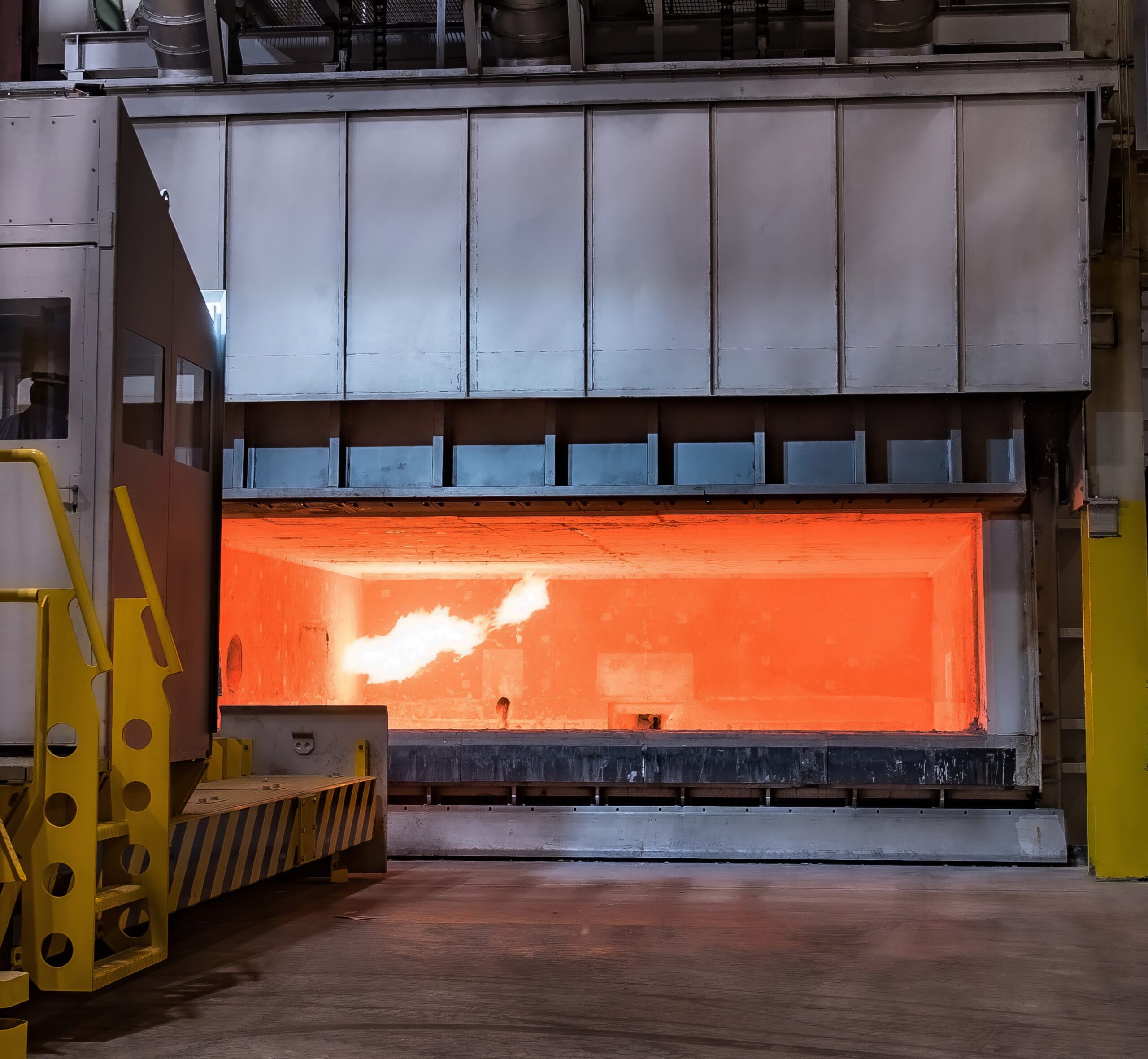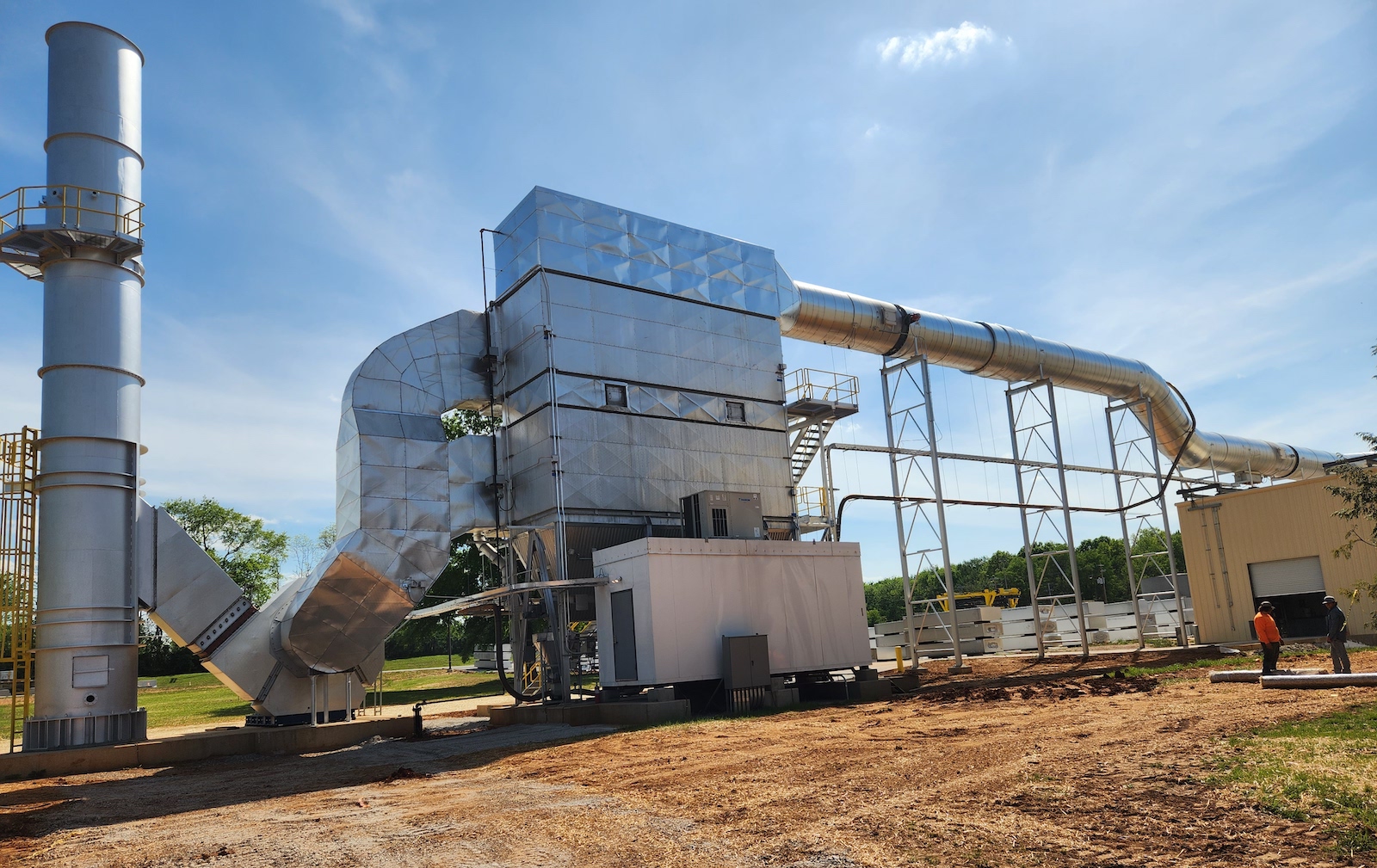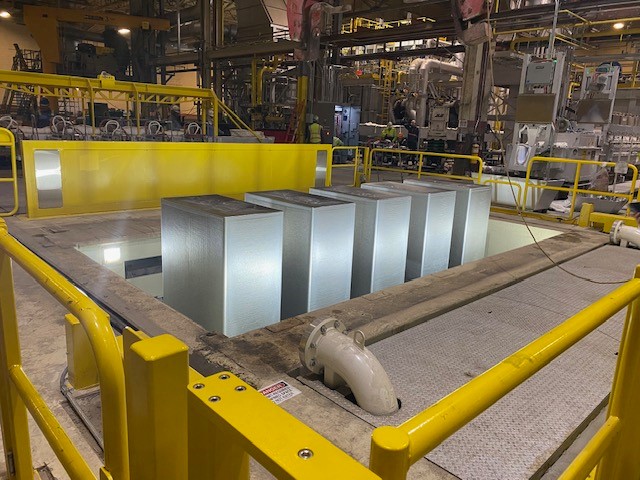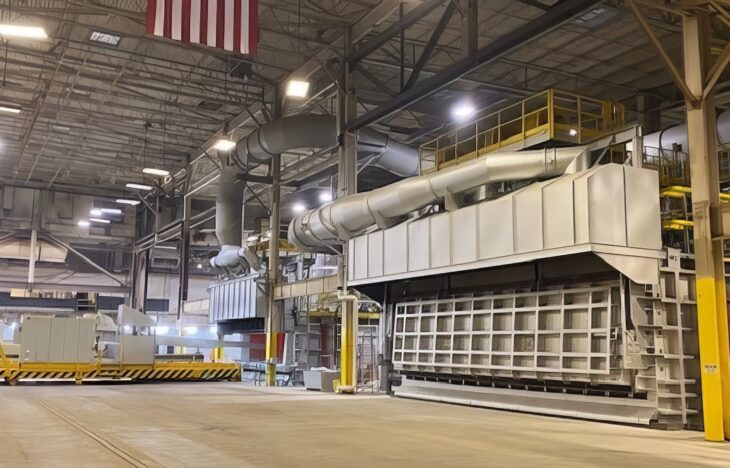Matalco Inc. completed the construction and startup of its seventh remelt facility, located in Franklin, KY, which will operate under the name Matalco Kentucky LLC. The $65 million investment represents the company’s third new plant project in the last eight years. The new plant will focus on the production of rolling ingot — affirming the company’s commitment to growing its product offerings for the North American aluminum rolling market.
“Matalco continues to see very good demand for both billet and especially ingot slab in the North American market,” said Robert Roscetti, VP of Corporate Development at Matalco. “We have been looking to further expand our ingot slab production in Kentucky for quite some time now. We believe that it is a region that is undersupplied for many of the rolling mills located in the area. Through ongoing discussions with key customers in that area and prospective clients, it made strategic and financial sense to build our facility in Franklin.”
Company Profile
Matalco Inc. is a part of the Giampaolo Group of Companies, a fully integrated metal management company that operates four complementary businesses. The company is North America’s largest independent producer of remelt aluminum billet for the extrusion and forging industries and ingot for the rolling industry. The company operates seven facilities, including its headquarters in Brampton, Ontario, Canada, and its U.S. facilities located in Canton, OH; Lordstown, OH; Bluffton, IN; Wisconsin Rapids, WI; Shelbyville, KY; and its latest facility in Franklin, KY. Altogether, the company is able to produce more than 1.9 billion lbs of recycled aluminum billet and rolling ingot per year — serving Canada and the Midwest and Northeastern regions of the U.S.
“Matalco is North America’s largest independent producer of remelt billet and ingot,” noted Roscetti. “Our business model maximizes the usage of scrap versus prime aluminum, with a typical scrap to prime aluminum ratio of 75:25%. The majority of the raw materials consumed in Matalco’s production process are supplied from within a 500-mile radius of our plants. This includes all aluminum scrap generated from our customers’ processes and most of our scrap and primary aluminum purchases.”
New Casting Facility
During the planning stage of the project, Matalco appointed Ramboll as its engineering, procurement, and construction management (EPCM) company, with the aim of optimizing the project’s design, streamlining operations, and ensuring adherence to industry standards. As the EPCM, Ramboll provided detailed design, technical expertise, and construction management, as well as facilitating the successful execution of the project.
Matalco and Ramboll also worked together on the equipment selection process, specifying equipment that would enhance the efficiency, productivity, and overall performance of the facility. The aim was to ensure that the equipment was not only technologically advanced, but also seamlessly integrated into the facility’s overall design.
With this plan in place, Matalco broke ground and started construction on the expansion project in 2021. Ramboll continued to provide support through scheduling and coordinating various stages of the project, managing subcontractors, and implementing robust safety protocols during construction. “We had a very aggressive construction and equipment installation timeline that had the facility scheduled for startup and commissioning in July 2022,” said Roscetti. “However, due to persistent supply chain issues, our schedule had to be readjusted, which resulted in a revised commissioning and startup date of December 2022. This date was successfully achieved, which is a testament to Matalco’s experience and ability to build state-of-the-art casthouse facilities.”
The new Franklin facility is a brownfield site with an existing 460,000 sq ft building, in which the company now occupies approximately 235,000 sq ft. The casting line begins with the furnaces supplied by Gillespie & Powers (G&P), including a 180,000 lb tilting dry hearth melter (Figure 1) and a 180,000 lb tilting holder. The tilting dry hearth melting furnace is outfitted with Bloom Engineering’s Ultra Low NOx Lumiflame® regenerative combustion technology with an Intelligen™ control system, which reduces fuel consumption, lowers emissions, and minimizes metal loss. The burners are able to react to changing conditions within the furnace, achieving a high production rate of 52,000 lbs of cold scrap aluminum per hour — equivalent to consuming nearly ten Chevy Tahoe SUVs every hour. The tilting melter also includes a rear pour-back receiving well that accepts molten metal crucibles and a transfer rate exceeding 22,500 lbs per minute.

In addition, Matalco decided to upgrade the furnace to be able to not only process clean scrap, but to also be able to process dirty and coated aluminum scrap. This is supported by the oxygen delacquering system from Bloom, which is installed between each burner. Activated by the furnace operator, the delacquering system strategically injects oxygen into the furnace to oxidize the pyrolysis gases produced from heating and burning off contaminants, such as paint, lacquer, foam, plastic, insulation, rubber, and other coating materials. Sensors in the exhaust stream monitor oxygen levels, and proprietary logic is used to control the flow rate of oxygen and the time period for which it is injected. The oxygen delacquering system also reduces both visible smoke and emissions.
The tilting melting furnace is also outfitted with a Type 500 Siber Force electro-magnetic stirring (EMS) system supplied by ALTEK, which provides an increased melt rate, reduced energy consumption, improved chemical and temperature homogeneity, and lower dross generation. Since the inductor is 100% air cooled, Matalco did not require any water-cooling pipework in the vicinity of the furnace, which minimized installation costs and improves safety compared to traditional water-cooled EMS systems. The EMS is managed by an ALTEK control system, which ensures optimal performance during the entire melting cycle and provides flexibility in terms of how the magnetic flux interacts with the molten metal bath.
Scrap materials are charged into the tilting melting furnace using a RiA rail-mounted charging machine with a container volume of 2,000 sq ft (58 sq m) — one of the largest in North America. The machine is capable of uniformly delivering 45,000 lbs of scrap material into the furnace in under 90 seconds, ensuring a shallow scrap pile for maximum melt rates and productivity. The charging machine is controlled from a remote location, keeping the operator away from the aluminum melt and ensuring their safety.
RiA also supplied a skimming machine with a 36 ft (11 m) stroke that is able to effectively and precisely skim, stir, mix, and clean both the melting and holding furnaces. The laser-positioned skimming machine is programmed to know where the furnace walls, sill, and roof are located to prevent accidental contact. This ensures that the refractory is protected and reduces the need for expensive furnace relinings, leading to less downtime.
The second furnace supplied by G&P is the tilting holder, which was designed to specifically meet Matalco’s requirements. The design presented unique challenges, mainly due to the need to fit the holder between two existing building columns within the brownfield building. As a result, several innovative solutions were implemented, including a split fume hood for the main door. Unlike a conventional design, the main fume hood remains stationary, mounted to the building columns, while the holding furnace structure tilts. The traditional cold fire combustion system from Bloom brings the aluminum bath to the correct casting temperature at a rate of 100°F (38°C) per hour. In addition, the combustion system is able to melt an additional 10,000 lbs of scrap aluminum. The tilting holder was also designed to accommodate a rotary degasser supplied by Matalco.
The environmental performance of the furnaces is supported by an air pollution control system supplied by Entecco Filter (Figure 2). The system extracts 100% of the off-gases from the burners and hoods of the furnaces and sends them to the baghouse for filtration. The system consumes less energy than a traditional baghouse, while also filtering at a higher efficiency — enabling Matalco to lower its hydrochloric acid (HCl), dioxin/furans, and particulate matter to way below government mandates. This supports the facility’s ability to melt and recycle large quantities of contaminated scrap, while being fully compliant with all state and federal stack emission tests.

Liquid aluminum is delivered from the holding furnace to the Wagstaff ShurCast™ casting machine with five-strand ingot casting tables that utilize the low head composite (LHC™) casting process (Figure 3). The LHC process uses an aluminum mold with a graphite bore to improve ingot quality and recoveries. The casting machine features a carriage system to support the casting tables and platen as it descends during casting. This helps with the starting head base and metal as well as improves safety around the pit and allows for easy maintenance after a cast is complete. The line also includes a hydraulic power unit, pit guarding, steam exhaust, a trough maintenance lift, and a water supply system (including cooling towers, cold well, hot well, and emergency water).

The casting process is achieved using the AutoCast™ control system, which enables a hands-free cast start. The system monitors critical parameters of the cast to eliminate process variables, allowing for more precise and repeatable measurement and control, including reporting and data storage. The system also controls the LaundAir air-cooled distribution trough, which is designed for minimum trough deflection and includes molten metal level control, head sensors, and pin positioners.
All of the rolling ingot produced at the Franklin facility undergoes strict metallurgical testing using the latest metal analyzer technologies. Once the casthouse achieves full capacity — which is expected by the end of 2023 — the facility will produce 280 million lbs of aluminum ingot per year. In the near term, the plant is focusing on the production of 6xxx and 5xxx alloys.
Conclusion
With the startup of its new remelt plant in Franklin, Matalco continues its 17th year of successful growth. Being able to provide high quality aluminum rolling ingot to the North American market is part of its long history of making ongoing improvements to its business in order to respond to customer needs and requirements, thus providing excellent service and high-quality products. And the company intends to continue to invest in its business and operations in the years to come. “Matalco represents a growth division of the Giampaolo Group of Companies,” said Roscetti. “Both the ownership team and senior executives are very positive on the company’s growth potential and the various opportunities available in the aluminum industry, especially regarding the possible expansion into other alloys and product lines.”
Editor’s Note: This article first appeared in the June 2023 issue of Light Metal Age. To receive the current issue, please subscribe.

